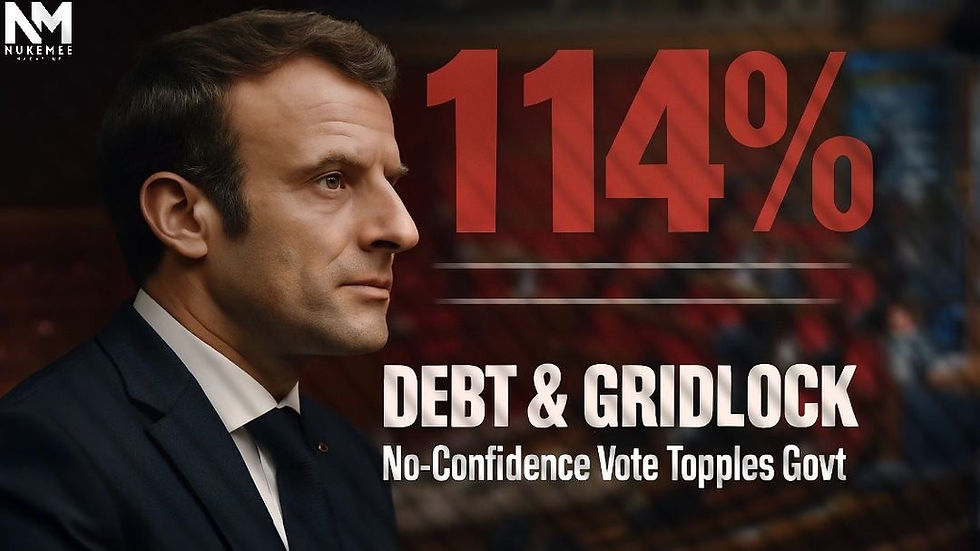The Domino Effect: Inside the French Government Collapse
- Sep 9, 2025
- 3 min read

This Article Is Available In
French President Emmanuel Macron is once again on the hunt for a new prime minister after lawmakers ousted François Bayrou in a no-confidence vote. This latest political upheaval marks the collapse of the third government since a gamble on snap elections last year backfired. The instability leaves Macron scrambling to restore a sense of order amidst growing public discontent, a fractured parliament, and mounting national debt that threatens to spiral out of control.
This is a crisis born from a political miscalculation. Prime Minister Bayrou staked his government on a high-stakes confidence vote, believing he could force lawmakers to back his budget plans for cutting public spending and reining in France's considerable debt. Instead, his political opponents seized the opportunity to gang up and topple his minority government. For a country already navigating international conflicts and domestic economic struggles, this latest drama adds a new layer of uncertainty and the risk of prolonged legislative gridlock.
Macron himself is not a stranger to navigating turbulent waters, as he retains substantial powers over foreign policy and the military. However, his domestic ambitions are increasingly facing ruin. The root of the problem lies in his decision to dissolve the National Assembly last year, a move intended to consolidate power that instead produced a deeply splintered legislature with no single dominant bloc. So, how will the president operate in this new political reality, where his choices for prime minister have no guarantee of survival?




